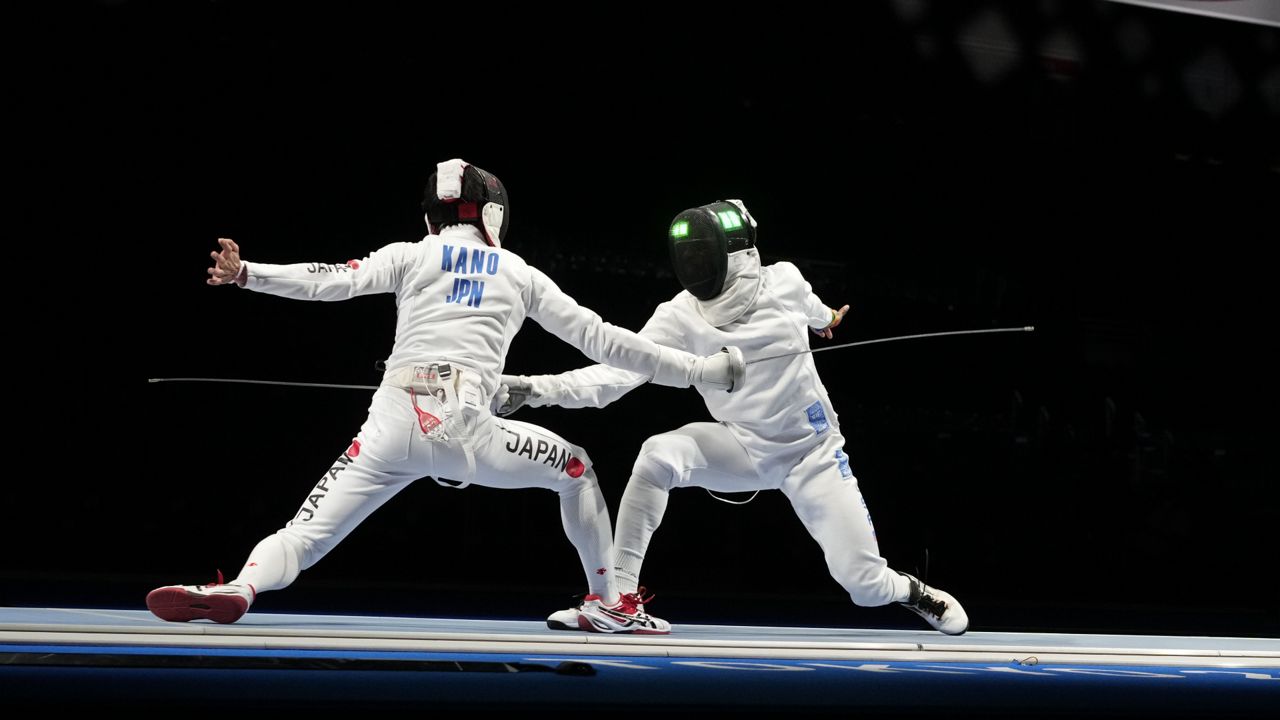Members of the U.S. Olympic fencing team donned pink masks ahead of a match last weekend, a symbolic protest against one of their own teammates who is facing accusations of sexual misconduct.
Alen Hadzic, 29, has been largely shunned by his teammates since the outset of the Tokyo Olympics over allegations of sexual impropriety from fellow fencers dating back to 2013. Hodzic has repeatedly denied the accusations against him.
Those tensions came to a head on Friday, when Hadzic was pictured alongside three of his teammates during introductions for the team épée competition. Hadzic’s teammates — Jake Hoyle, Curtis McDowald and Yeisser Ramirez — were pictured wearing pink masks, while Hadzic wore black.
In an interview with USA Today, Hadzic said McDowald handed out the masks to Hoyle and Ramirez prior to the introductions. When Hadzic asked if there was an extra for him to wear, he was told no.
"I just remember thinking it would be kind of silly if I stood out there with a black mask and I asked them if they had an extra (pink) one, and they go, 'Oh, no,' " Hadzic told USA Today.
Ultimately, Hadzic did not compete in the games, and the U.S. team came in ninth place after losing to Japan.
Hadzic’s presence at the Olympic games in Tokyo has been a point of controversy since the New Jersey native was temporarily suspended by the U.S. Center for SafeSport — a nonprofit designed to protect athletes against physical, sexual or emotional abuse — in early June, after three female fencers alleged he had sexually harassed or otherwise committed misconduct against them during separate interactions in 2013 and 2015, according to a report from the New York Times.
Hadzic appealed the decision, and it was swiftly reversed, with an arbitrator saying Hadzic’s suspension was “inappropriate to the allegations,” adding that his participation at the Tokyo games would not be“detrimental to the reputation of the United States or his sport.”
The decision garnered swift pushback from other members of the U.S. fencing team. In an email obtained by USA Today, CEO of U.S.A. Fencing Kris Ekeren said the team would “implement a safety plan for the upcoming Olympic Games” to keep Hadzic separate from the rest of the team.
“...Team athletes have expressed concerns for their safety and well-being arising from your presence, which they say are likely to adversely affect their mental and emotional abilities to prepare and compete at the highest levels required for success in the Olympic Games," the email read in part.
This “safety plan” included flying separately from his teammates to Japan. Hadzic was also not allowed to reside in the Olympic Village, and was forced to stay in a hotel.
Some athletes have applauded Hoyle, McDowald and Ramirez for their symbolic protest on Friday. Ibtihaj Muhammad, the first Muslim American woman to compete in a hijab at the Olympics for the U.S. in fencing, shared a photo of the moment to Twitter, writing: “Kudos to the team for taking a stand.”
Muhammad earned a bronze medal at the 2016 Summer Olympics.
Others seemed less than thrilled. Jacqueline Dubrovich, a current member of the U.S. fencing team competing in the Olympics, took to Instagram on Friday to decry the mask-wearing as “performative activism” that “does not address the issue at hand here.”



